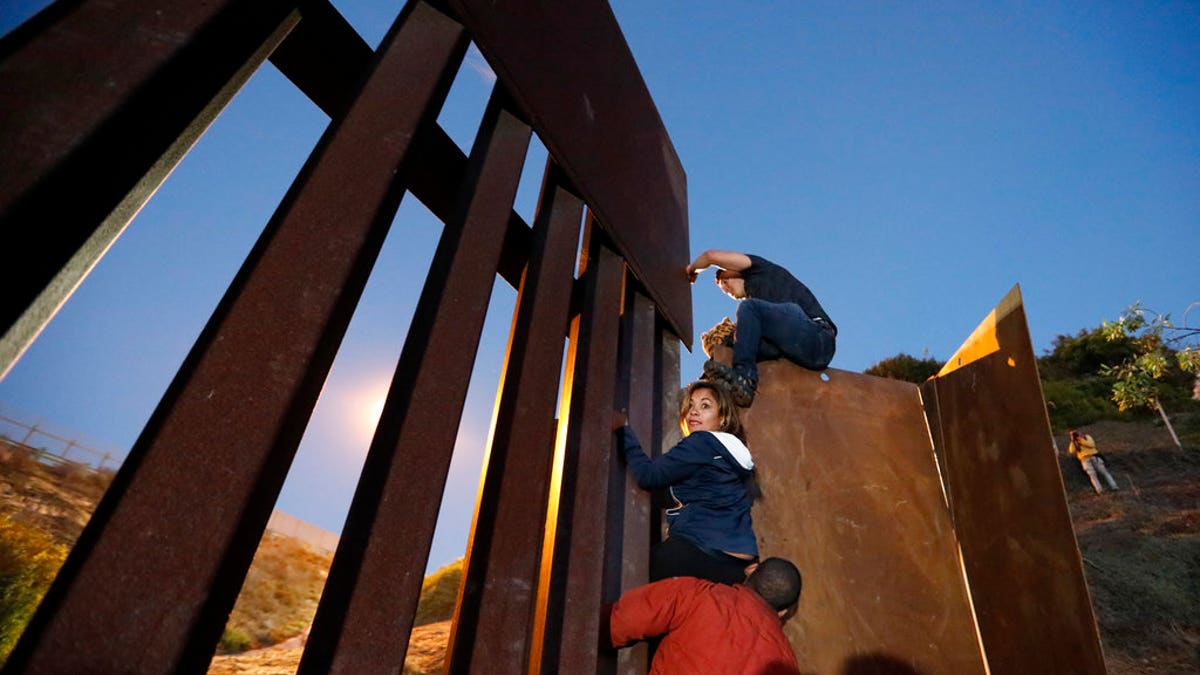
The United States pledged $5.8 billion in aid and investment Tuesday in Central America, and another $4.8 billion in development aid for southern Mexico. The U.S aid aims to promote better security conditions and job opportunities as part of a regional plan to allow Central Americans and Mexicans to remain in their countries and not have to emigrate. (AP Photo/Rebecca Blackwell)
The United States is putting in place a regional plan to allow Central Americans and Mexicans to remain in their countries and not have to emigrate. American officials pledged $5.8 billion in aid and investment Tuesday for strengthening government and economic development in Central America, and another $4.8 billion in development aid for southern Mexico.
The plan, which aims to promote better security conditions and job opportunities, was announced in a joint U.S.-Mexican statement released by the State Department and read aloud by Mexican Foreign Relations Secretary Marcelo Ebrard in Mexico City.
"In sum, I think this is good news, very good news for Mexico," Ebrard said.
Newly inaugurated President Andres Manuel Lopez Obrador waxed poetic about the plan to provide jobs so people won't have to emigrate.
"I have a dream that I want to see become a reality ... that nobody will want to go work in the United States anymore," he said at a morning news conference before the announcement.
Ebrard previously suggested that about $25 billion in U.S. investment would be an appropriate figure for what Mexicans and Central Americans have dubbed "The Alliance for Prosperity" in the region.
The combination of public and private investment for the stay-at-home effort doesn't require congressional approval, unlike Trump's signature project to stem illegal immigration by means of a border wall.
More than 49,000 children crossed the border alone during the 2018 budget year. The average length of time that children spend in shelters has increased from 40 days in the 2016 fiscal year to 59 in 2018, according to federal data. There are currently more than 14,000 children in 137 government shelters around the country.
The United States has reportedly wanted Mexico to allow migrants seeking asylum in the United States to remain in Mexico while their applications are processed.
The State Department issued a statement saying, "The United States is committing $5.8 billion through public and private investment to promote institutional reforms and development in the Northern Triangle," a term that refers to Honduras, Guatemala and El Salvador.
The new Mexican administration has said it is also interested in agricultural, forestry and tourism projects in southern Mexico, and the U.S. said it will contribute to those efforts.
The U.S. Overseas Private Investment Corporation "is prepared to invest and mobilize $2 billion in additional funds for projects in southern Mexico that are viable and attract private sector investment," according to the statement. "This amount is in addition to the $2.8 billion in projects for Mexico through OPIC's current investment pipeline."
Ebrard said: "The commitments established here signify more than doubling foreign investment in southern Mexico starting in 2019."
It was unclear if Mexico would give anything in return. A planned announcement about Mexico's migration policy was postponed until Wednesday.
The Associated Press contributed to this report.



